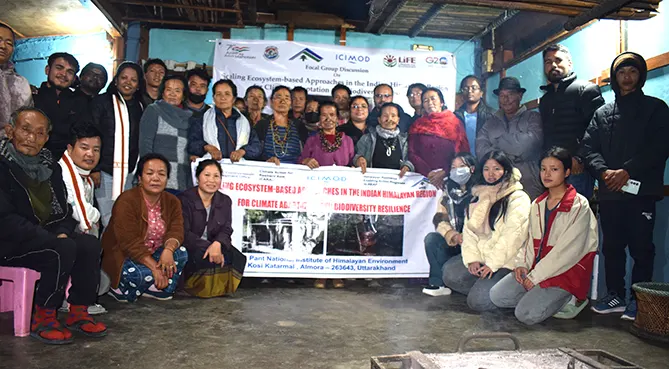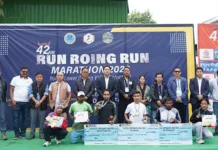ZIRO, 28 Nov: The GB Pant National Institute of Himalayan Environment (GBPNIHE), in collaboration with the with the International Centre for Integrated Mountain Development (ICIMOD), organised a focal group discussion (FGD) on ‘Water security challenges and spring rejuvenation in the Himalayan region’ here in Lower Subansiri district recently.
The programme, which was held as part of the project titled ‘Scaling ecosystem-based approaches in the Indian Himalayan region for climate adaptation and biodiversity resilience’ under the HI-REAP programme, brought together 50 participants, including experts and local stakeholders.
GBPNIHE-NERC Scientist C Tridipa Biswas led the programme, emphasising the significance of natural springs and springshed management in ensuring water security.
Highlighting the region’s groundwater scarcity, she urged communities to take responsibility for preserving and rejuvenating springs
for long-term water security for the future generations.
Later, experts from the ICIMOD, including Yogesh Barola and Goma Khadka, provided insights into spring ecosystem governance and spring rejuvenation with hydro-geological assessments. They also stressed the importance of gender equality in water management initiatives. Specialists from GBPNIHE (HQ, NERC, and SRC) added depth to the discussions with their visions on ecosystem management and soil conservation.
ZPM Subu Lento actively backed the springshed management project, while villagers from Kalung actively participated, sharing their experiences and challenges related to declining spring water availability.
“We face water shortages during dry seasons, impacting our daily needs,” a villager said,highlighting the urgency of the issue.
“Suggestions from the community combined traditional techniques and modern ecosystem-based approaches, reflecting the value of integrating local knowledge with scientific methods. The villagers’ engagement highlighted a powerful message: sustainable water security depends on collaborative community efforts,” the GBPNIHE stated in a release.
“As Arunachal Pradesh grapples with the dual challenges of water scarcity and climate change, the success of such initiatives provides a blueprint for sustainable water resource management across the Indian Himalayan region,” it added.



